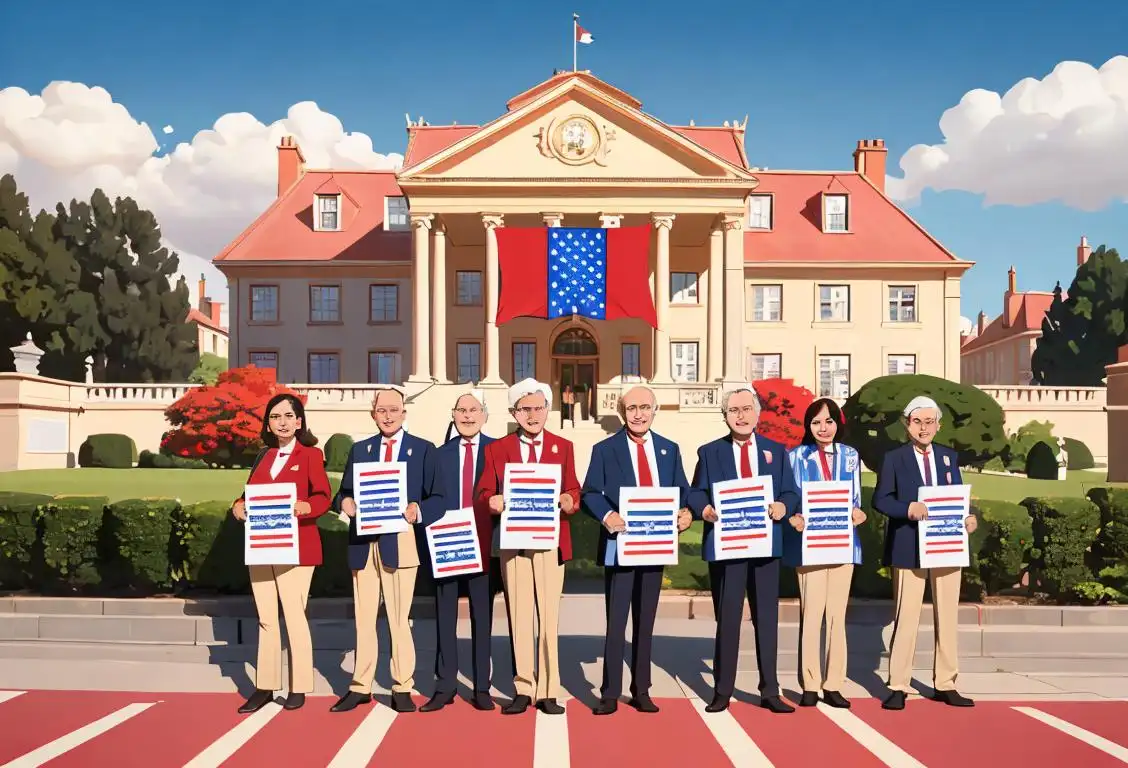National Fragrance Day

On this day, we're sure not even skunks can offend our noses, because it's National Fragrance Day! Prepare to embark on a sniff-tastic journey that reminds us why pleasing aromas are worth celebrating.
When is Fragrance Day?
It's national fragrance day on the 21st March.
The Sweet-Scented History
It's no mystery that humans love pleasant aromas, but the internet history of National Fragrance Day is as elusive as the hint of vanilla in your favorite perfume. The day start beautifying our calendars and olfactory senses around 2015. It was first celebrated by The Fragrance Foundation, dedicated to appreciating the beauty and artistry of fragrance in all its forms. The most mentions of National Fragrance Day on the internet were detected on March 21, 2021, which is when we've been collectively gassing – er, chatting about this aromatic day.
The Fragrant Celebration
How does one observe National Fragrance Day, you ask? Well, it’s as easy as spritzing your favorite scent! Whether it's the smell of fresh roses, the earthy scent of sandalwood or the intoxicating aroma of freshly brewed coffee, today is the day to indulge in your favorite fragrances. Shop your favorite fragrances online or take up a DIY project and make your own signature scent! Either way, enjoy a day filled with delectable smells.
The Power of Scent
Scents have the power to evoke powerful memories and emotions, thanks to our powerful olfactory sense that's intertwined with our memory centers. A whiff of lavender might transport you back to your grandma’s garden, or the smell of sea breeze might remind you of that beach vacation. Use National Fragrance Day to connect to your sensory memories or create new aromatic memories!
History behind the term 'Fragrance'
1500 BC
Ancient Incense
The history of fragrance can be traced back to ancient times when the Egyptians and Mesopotamians used fragrant herbs, flowers, and resins for religious ceremonies and burial rituals. Incense, made by burning natural materials such as myrrh, frankincense, and cedarwood, was highly valued for its aromatic properties and believed to have spiritual and cleansing powers.
700 BC
Ancient Perfume
During the time of the ancient Greeks, the concept of perfumery began to develop. The Greeks used various natural substances like flowers, herbs, and oils to create scented oils, balms, and perfumes. They would often wear fragrances as personal adornments and believed that pleasant scents could enhance their social status and attractiveness.
9th Century
Arab Influence
With the rise of the Islamic Empire, the art of perfumery spread across the Middle East. Arab chemists and perfumers made significant advancements in distillation techniques, allowing them to extract essential oils from flowers and plants more efficiently. These distillation methods were then passed on to Europe, contributing to the growth of perfumery in the Western world.
14th Century
European Perfumery
Perfumery began to flourish in Europe during the Renaissance period. Italy became the center of perfume production, and skilled perfumers crafted unique scents for the nobility. Queen Elizabeth I of England was known to have a strong affinity for fragrance, and it became fashionable for European monarchs and aristocrats to wear perfumes.
19th Century
Emergence of Modern Perfumery
The industrial revolution in the 19th century brought significant advancements in perfume production. Synthetic fragrance compounds were developed, allowing perfumers to create new scents that were more affordable and consistent in quality. Brands like Guerlain and Chanel emerged, revolutionizing the perfume industry and making fragrance accessible to a wider audience.
20th Century
Fragrance as a Cultural Icon
In the 20th century, fragrance became a symbol of personal identity and a means of self-expression. Perfumes were marketed with celebrity endorsements and associated with specific lifestyles and emotions. Fragrance houses continuously innovated, introducing new ingredients and blending techniques to create unique and memorable scents that captivated consumers around the world.
Did you know?
Did you know the first synthetic perfume was created in the late 19th century? If you're sporting anything other than rosemary oil, you can thank your perfume's chemically engineered notes!Tagged
awareness fun rememberance Fragrance scentFirst identified
18th March 2015Most mentioned on
21st March 2021Total mentions
7106Other days
Fragrance Day
Unemployed Day
Heroes Day
Cancer Survivors Day
Memorial Day
Bestfriends Day
Suicide Prevention Day
Liberation Day
Pumpkin Day
Voters Day








